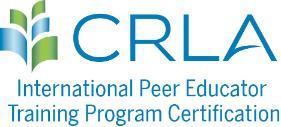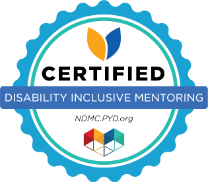Eagle Connections is a Florida program for college students with intellectual disabilities. It follows TSC’s mission and offers classes that support learning, social skills, and job training. The goal is to help students find work and live more independently.
Academics
Eagle Connections offers an Employment Credential made up of 25 or more units. Students take required core courses and choose electives based on their career goals. The courses are inclusive and listed on the Advising Sheet. Most students take 2 to 3 classes per semester and finish in about 4 to 5 semesters, or 2 years. Courses are taken for credential credit, not for college credit or a degree. However, eligible students may take some courses for academic credit.
Advising Sheet: Eagle Connections Employment Credential
Campus Life
As TSC students, Eagle Connections students are eligible to participate in and utilize the:
- Clubs and Organizations
- Library, Learning Commons, and Learning Specialists
- Mental Health Counseling Center and Career Services
- Gym and Intramural Sports
- Faculty office hours
A typical semester includes classes, study time, life skills sessions, and social activities. Students also meet one-on-one with program staff to set and work on personal goals using the STAR model from Project 10. Students are expected to study and finish assignments on their own. They must follow TSC rules for attendance, behavior, and accommodations.
Admission and Application Guide
Applicants must have or meet the following criteria:
- A documented Intellectual Disability (ID) that impacts progression in a standard curriculum in pursuit of a postsecondary degree or certificate (Students may have co-occurring disabilities.)
- Graduated with a high school diploma or high school equivalency (i.e. GED)
- Is at least 18 years old
- Has employment and community participation as personal goals
- Is capable of mobility on adult campuses, including transportation to and from campus
- Displays a level of social maturity conducive to an adult environment (i.e. employment and educational settings)
- Has the ability to maintain self-care and personal hygiene independently
- Has a support system committed to a collaborative partnership
- Has a reliable means of communication
Applicants must submit the following required documentation as applicable:
- TSC online application for admission as a non-degree seeking student, including proof of residency.
- Make sure to save TSC student ID, email and password.
- Eagle Connections application including three reference letters.
- Documentation of an Intellectual Disability and any co-occurring disabilities. Refer to SAS Documentation Guidelines (ID must be clearly stated)
- Copy of most recent educational evaluation or summary of performance (SOP) and may also include most recent Vocational Rehabilitation plan
- Proof of graduation/completion (i.e. official and final high school transcript or GED)
- Student Accessibility Services (SAS) application
To get the most support, students are strongly encouraged to complete the Leon County Schools Transition Program and sign up with the Agency for Persons with Disabilities and Vocational Rehabilitation before applying to Eagle Connections.
If you are a Vocational Rehabilitation client, list Eagle Connections courses and activities on your job plan. These steps are not required, but they help build a strong support system for students. If you want to apply, contact the program. Applications are accepted year-round, but the usual deadline is May 1 before the fall term. After review, qualified applicants will be asked to attend an interview with a support person. If the program is full, you may be added to a waiting list.
Additional Resources
Meet the Staff
.jpg)
Abi Mustapha - Program Coordinator
[email protected]
(850) 201-8432
.jpg)
Dr. Sonja Smith - Assistant Director Student Services
[email protected]
(850) 201-9484
Helpful Links
- Agency for Persons with Disabilities
- Big Bend Transition Council
- College Reading and Learning Association
- Florida Center for Students with Unique Abilities
- Florida Developmental Disabilities Council, Inc
- Future Pathways
- Leon County Schools Transition Program
- Project 10 Transition Education Network
- Think College
- Vocational Rehabilitation
Program Cost and Financial Aid
Tuition: Tuition is paid at the current rate per credit hour at TSC. For most students, this is between $604 and $720 a semester.
Books: Books are selected for each course by the instructor. Books can be purchased at the TSC Bookstore managed by Follett.
Financial Aid Resources:
- Free Application for Federal Student Aid (FAFSA)
- Federal Pell Grant, Supplemental Educational Opportunity Grant, and/or Federal Work-Study
- Florida Center for Students with Unique Abilities
- $7,000 scholarship per year submitted on behalf of the student
- Florida Pre-Paid
- TSC Scholarships
- Jan La Belle Scholarship Program
- Microsoft Disability Scholarship
- Students with Down Syndrome Scholarships:
- Vocational Rehabilitation
- Guide to Paying for College for People with Disabilities
- Project 10: Financial Resources for Students with Disabilities
Student Supports
Eagle Connections Program Coordinator: oversees the mission and implementation of the Florida Postsecondary Comprehensive Transition Program at TSC. These responsibilities include student referrals and onboarding, hiring and supervising the program staff, partnering with campus departments and community agencies, and submitting and maintaining records and reports.
Eagle Connections Specialist: helps with the facilitation of social and employability skills and the transition for students to internships and work experiences.
Peer Mentors: act as positive role models for students and help them navigate new responsibilities that come with being a college student. Mentors undergo an application process, background check, interview, and training aligned with the College Reading and Learning Association standards. Mentors are not tutors, personal aids, faculty or parent liaisons, or counselors. Keep in mind that it is the full responsibility of the student to complete and submit their own assignments and exams for successful course completion.
"Working for Eagles Connections has been an absolutely wonderful experience that has brought me many valuable opportunities to learn and grow as an individual. I am so grateful to have been a part of this program; there will always be a special place in my heart for the coworkers and students I had the privilege to work with."– Naomy, peer mentor
“I believe I have contributed to this program by providing our students with constant encouragement, patience, and establishing their own self-determination amongst other things.” – Brittany, program intern
In addition, the program relies on the team effort of departments across campus including Student Accessibility Services, Career Services, Student Services, Academic Affairs, faculty members and deans, and others. Partnerships include community agencies like Agency for Persons with Disabilities, Big Bend Transition Council, Leon County Schools, Keys to Exceptional Youth Success, Vocational Rehabilitation, and others.

